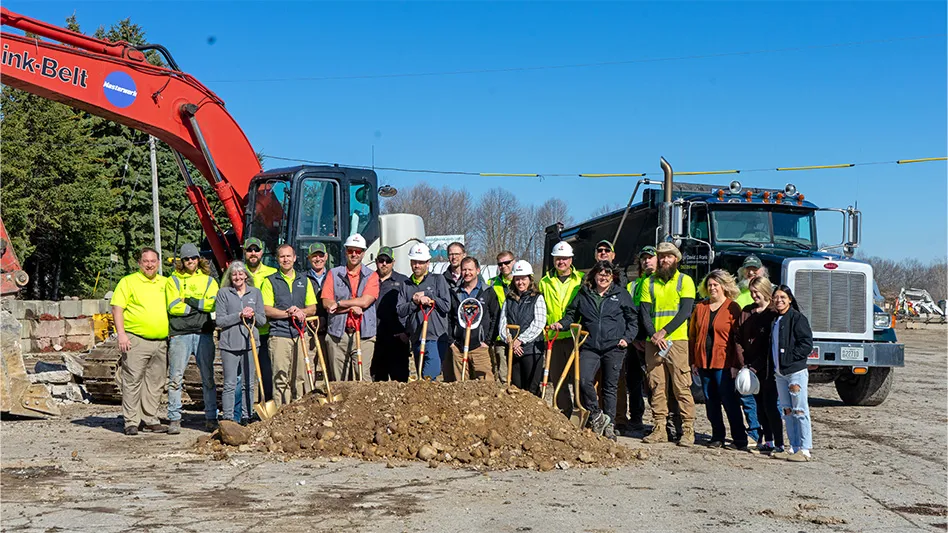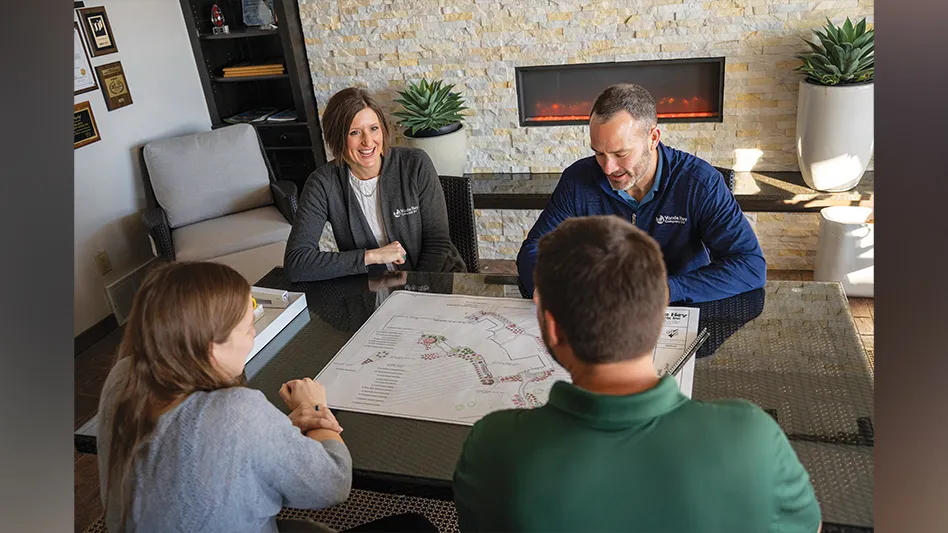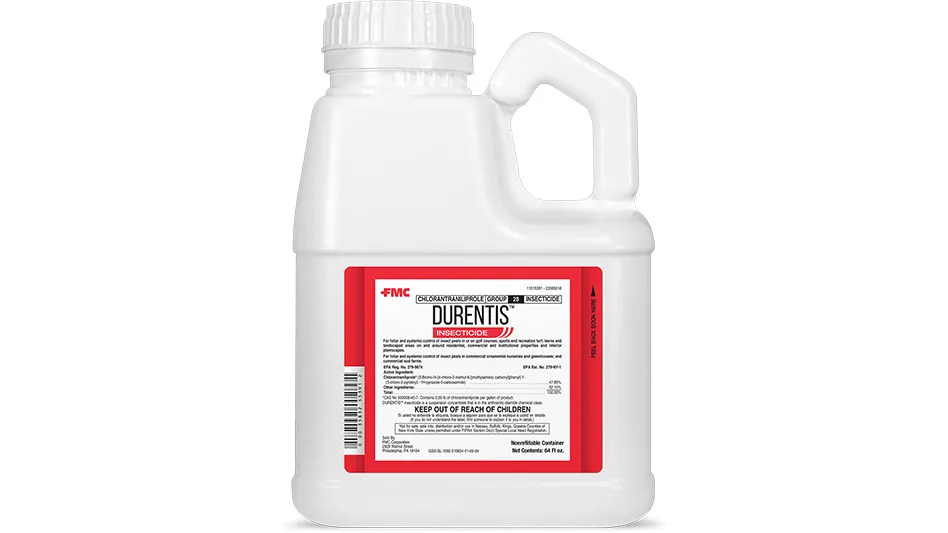

When landscaping companies were deemed essential businesses last spring, Phil Steinhauer was relieved to learn that Designscapes Colorado could continue working through the pandemic. But COVID caused another dilemma for the company when national borders closed – shutting off the flow of H-2B workers that Steinhauer has relied on to fill his labor force for the last 15 years.
“Having to hire hundreds of employees over the course of three weeks was a big challenge,” says Steinhauer, Designscapes CEO, who typically brings in 170 H-2B workers every year to perform commercial and residential landscape construction and maintenance work around Denver. “Our approach was to look at where the opportunity was instead of looking at this as a disaster.”
New labor pool.
With many other businesses closed due to COVID, Steinhauer looked to the local labor pool. To capture candidates laid off from other industries, Designscapes began holding weekly job fairs in the parking lot, where HR teammates could process as many applicants as possible in a socially distanced setting.
“We started to find a lot of displaced restaurant and hotel workers applying, because the hospitality industry shut down when the pandemic started,” Steinhauer says. “Most of them had zero (landscape) industry experience, but we were looking for people more than we were experience.”
Designscapes promoted these job fairs by distributing flyers and advertising on local radio stations, but Steinhauer says the most effective promotion was word-of-mouth. “We started a referral program where we paid bonuses to employees who referred people to us,” he says. “The new people we hired (would tell) their friends, so it grew exponentially. We probably had 30 or 40 applicants every Monday.”
Applicants filled out a simple questionnaire to confirm that they had a valid driver’s license and could perform basic job duties like lifting and digging. “If you were willing to work, you had a job,” Steinhauer says.

Over the first couple months of the pandemic, Designscapes hired about 250 workers at these weekly job fairs. Since they weren’t vetting candidates much before hiring, Steinhauer assumed there would be some attrition, he says, “knowing that some wouldn’t show, some wouldn’t work out, and some, when the restaurants reopened, would go back.”
However, the success of this hiring method surprised him, as more than 150 employees stayed through the summer, and about 120 remained through the winter. “A lot of them saw opportunity in the upward mobility that the hospitality industry doesn’t have,” Steinhauer says. “When restaurants slowly started to open back up, we didn’t lose what we thought might just be temporary employees; they became full-time employees.”
This labor shift caused an unforeseen domino effect, unlocking new opportunities as Designscapes worked to integrate these employees into their business model.
On-the-job training.
The biggest dilemma with hiring displaced hospitality workers was their lack of landscape experience. Once Steinhauer filled Designscapes labor force for 2020, “the next challenge was: How do we now train them in a format with social distancing?” he says.
About three years ago, Designscapes filmed and produced its own training videos with employees demonstrating the company’s processes, safety standards and equipment guidelines. Pre-pandemic, the whole team gathered at the office to watch these videos and kick off the season with a barbecue.
Despite having no H-2B workers last year, Designscapes still managed to increase its revenue to over $32 million and post 10% growth.
Instead, Steinhauer relied on his experienced foremen and crew leaders to gradually train new hires on the jobsite. “It was a slow process,” he says. “I don’t think everybody got trained until the Fourth of July.”
To make remote training more effective, the Designscapes team spent last fall and winter setting up an online learning management system – making its training videos and tests accessible to employees anywhere, on any device. After rolling out this remote safety training program in April 2021, the company plans to add more educational courses in the future to help employees advance into management roles.
“Now we have this whole platform that came out of our need to train employees during COVID,” Steinhauer says. “We have a committee of three people working on what is going to be a year-round program called Designscapes Academy, which can open doors for all kinds of career training.”
Year-round growth.
Designscapes’ hiring approach caused a ripple effect throughout the business. Instead of being a strictly seasonal operation dependent on the availability of H-2B visas, the company can now continue working without pause. “To adapt to the changing conditions of the employment situation, we’ve had to shift our business model to be more year-round,” Steinhauer says. “The advantage is it will allow our company to grow in a different way.”
To keep this new workforce engaged all year long, Designscapes is now offering year-round maintenance services and pursuing snow removal contracts that require more manual shoveling.
But the real key to keeping employees engaged year-round isn’t just about the workload; Steinhauer says it boils down to the culture and team spirit.
“It takes a team of people all kicking in and embracing this new opportunity,” says Steinhauer, who has about 110 full-time employees in addition to a labor force of about 200. “From our HR department to our foremen to our project managers, they were all willing to change the way they did business to accommodate these unskilled workers. Embracing these employees as part of our company is an important part of keeping them over the winter.”
Although COVID forced Steinhauer to rethink Designscapes’ labor force, this new approach to hiring has transformed the company from a seasonal business into a year-round service. Meanwhile, the need for remote training prompted the creation of Designscapes Academy to develop skills and advancement opportunities for employees. Together, these changes positioned the company to achieve record sales during the pandemic, posting 10% growth and over $32 million in revenue since last year.
“It would have been easy for us to go back to our old model,” says Steinhauer, “but our willingness to change our business was a big factor (in our growth).”

Explore the May 2021 Issue
Check out more from this issue and find you next story to read.
Latest from Lawn & Landscape
- Landscape Workshop acquires Cut Above Enterprises
- Scythe debuts new generation of M.52
- New identities
- Ruppert promotes Anderson to director of talent acquisition
- Fleet on the Street
- Man in the mirror
- EverSmith Brands appoints Ken Hutcheson as its new CEO
- Manitou unveils new Woodcracker tree saw with grapple





